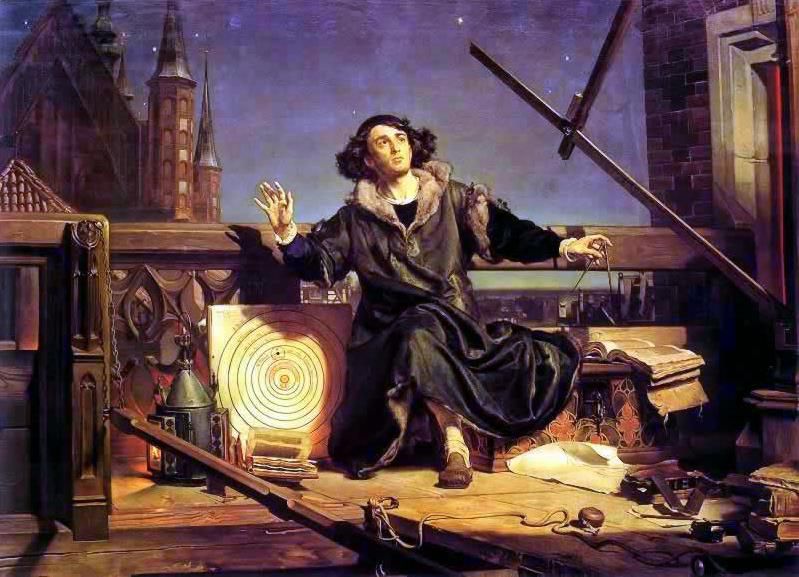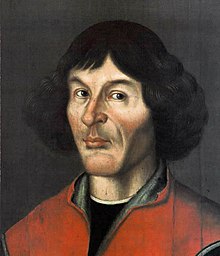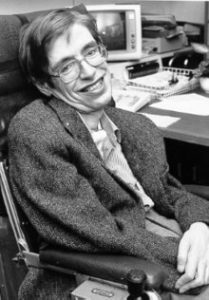
Nicolaus Copernicus and Stephen Hawking were both Enlightenment scientists of their time and they lived 469 years apart. Copernicus studied law and medicine at the great center of Renaissance learning, the University of Bologna. After he observed a lunar eclipse in Rome, in 1500, he dedicated himself to astronomy, as well. Hawking uses Thomas Kuhn’s term “paradigm shift,” to describe the effects of the Copernican heliocentric theory,“…opening the way to modern astronomy and broadly affecting science, philosophy and religion.”
Who was Nicolaus Copernicus?

Nicolaus Copernicus was a Renaissance-era mathematician and astronomer who formulated a model of the universe that placed the Sun rather than the Earth at the center of the universe, likely independently of Aristarchus of Samos, who had formulated such a model some eighteen centuries earlier. Aristarchus of Samos was a Greek astronomer who maintained that Earth rotates on its axis and revolves around the Sun. Nicolaus Copernicus was born February 19, 1473 in the Kingdom of Poland and died at the age of 70 on May 24, 1543 in Royal Prussia, Kingdom of Poland. By the time he was born, Toruń had ceded (give up) to Poland, rendering him a citizen under the Polish crown. German was Copernicus’s first language, but some scholars believe that he spoke some Polish as well. Nicolaus Copernicus was known for Heliocentrism, Copernicus’ Law, and Copernican principle. He obtained a doctorate in canon law and was also a mathematician, astronomer, physician, classics scholar, translator, governor, diplomat, and economist. Nicolaus Copernicus was influenced by Johannes Kepler.
https://youtu.be/M0p6NKA
Who was Stephen Hawking?

